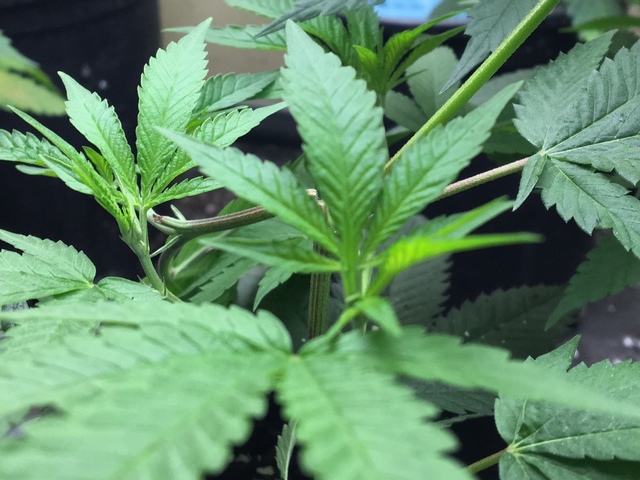You are here
Home 🌿 Marijuana Politics 🌿 Colorado marijuana leader says dismantling of industry would cause a recession 🌿Colorado marijuana leader says dismantling of industry would cause a recession

Despite new figures that show Colorado’s marijuana sales topped $1 billion for the first time ever last year, there is some concern in the state over what could happen to the burgeoning business under new U.S. Attorney General Jeff Sessions.
Sessions is on record in the past saying that “Good people don’t smoke marijuana” and that “marijuana is not the kind of thing that ought to be legalized” and that it is “a very real danger.”
The Obama administration allowed states to operate medical and recreational marijuana business without much federal intervention, despite the plant still being classified as a Schedule I drug by the Drug Enforcement Administration.
Some marijuana dispensary owners and cannabis growers in Colorado have expressed concern that Sessions and the Trump administration may try to stifle the industry after Sessions said he would “review and evaluate” the rule encouraging the federal government to stay out of state marijuana industries.
But it remains unknown exactly how they will treat marijuana.
Eight states have now legalized recreational marijuana and 29 states allow medical marijuana, but Colorado has been the frontrunner in the industry since its voters approved medical marijuana in 2000 and recreational marijuana in 2012.
The recreational industry went active in 2014 and has brought in hundreds of millions of dollars to Colorado each year until 2016, when the state sold $875 million of recreational pot and $438 million of medical marijuana.
The state brought in nearly $200 million in revenue off the 2016 sales, much of which goes to school construction projects and public health initiatives.
But if the federal government were to clamp down on marijuana once again, it could be devastating for Colorado, according to people who work in the industry and Colorado politicians.
“I absolutely believe that the dismantling of cannabis in Colorado would cause a recession,” said Kristi Kelly, the Executive Director of the Marijuana Industry Group.
She says that Colorado has implemented a successful program that other states are modeling, and that any disruptions in the industry would be catastrophic.
“The economics of this are huge in Colorado,” Kelly said. “There is a billion-dollar economic impact in Colorado, which is directly attributable or affiliated with the cannabis industry, so that equates to 20,000 people licensed in trade.”
She says that the cannabis tourism in Colorado and extra taxes have added to Colorado’s boom in recent years and undermined the black market for marijuana.
Denver dispensary owner Brian Ruden, who owns seven Starbuds shops in the city, says he and others in the industry are concerned about the economic impact a shutdown of the state’s industry would have as well.
“Everyone in the industry is concerned,” Ruden said. “[Sessions] could possibly send a letter to all the state governors and say, ‘Get rid of the marijuana in your states or we’ll take action.”
Both he and Kelly noted that since the industry has become so engrained in Colorado, the domino effect a shutdown would have on jobs could be far-ranging.
“There are thousands and thousands of jobs that rely on the marijuana industry indirectly,” Ruden said. “Electricians, plumbers, warehouse space – all things are impacted by the industry.”
And despite the record-high pot sales last year, the Colorado Gov. John Hickenlooper has discussed possibly raising the state special sales tax on marijuana in order to bridge a state budget gap created by the Gallagher Amendment, which checks the differences between residential and non-residential property tax revenues.
The current special sales tax sits at 10 percent, but is set to fall to 8 percent on July 1 should the Legislature not pass the requested changes.
420 Intel is Your Source for Marijuana News
420 Intel Canada is your leading news source for the Canadian cannabis industry. Get the latest updates on Canadian cannabis stocks and developments on how Canada continues to be a major player in the worldwide recreational and medical cannabis industry.
420 Intel Canada is the Canadian Industry news outlet that will keep you updated on how these Canadian developments in recreational and medical marijuana will impact the country and the world. Our commitment is to bring you the most important cannabis news stories from across Canada every day of the week.
Marijuana industry news is a constant endeavor with new developments each day. For marijuana news across the True North, 420 Intel Canada promises to bring you quality, Canadian, cannabis industry news.
You can get 420 Intel news delivered directly to your inbox by signing up for our daily marijuana news, ensuring you’re always kept up to date on the ever-changing cannabis industry. To stay even better informed about marijuana legalization news follow us on Twitter, Facebook and LinkedIn.




